Gerhard Fasol, Chair
“ENERGY”
Wednesday, 20th February 2013, Embassy of Austria, Tokyo
- 14:00 Welcome by Dr. Bernhard Zimburg, Ambassador of Austria to Japan
- 14:10 Gerhard Fasol, “today’s agenda”
- 14:20 – 14:40 Robert Geller
Professor of Geophysics University of Tokyo, seismologist. First ever tenured non-Japanese faculty member at the University of Tokyo
“A seismologist looks at nuclear power plant safety issues” - 14:40 – 15:20 Gerhard Fasol
Physicist. CEO of Eurotechnology Japan KK, served as Assoc Professor at Tokyo University and Lecturer at Cambridge University and Manager of Hitachi Cambridge R&D lab
“Ludwig Boltzmann – the disrespectful revolutionary” - 15:40 – 16:20 Kiyoshi Kurokawa
Academic Fellow of GRIPS and former Chairman of Fukushima Nuclear Accident Independent Investigation Commission by National Diet of Japan
“Creativity, Crazy Ones and Power of Pull” - 16:40 – 17:20 Shuji Nakamura
Professor, University of California, Santa Barbara. Inventor of GaN LEDs and lasers, which are the basis for the global LED lighting revolution.
“The global lighting revolution and the changes I want for Japan” - 17:20 – 17:30 Gerhard Fasol “Summary”
- Followed by reception (private, invitation only)
Registration: latest 10 February 2013 (by invitation only)
Further information:
- Gerhard Fasol and
- Peter Storer, Minister for Cultural Affairs, Embassy of Austria
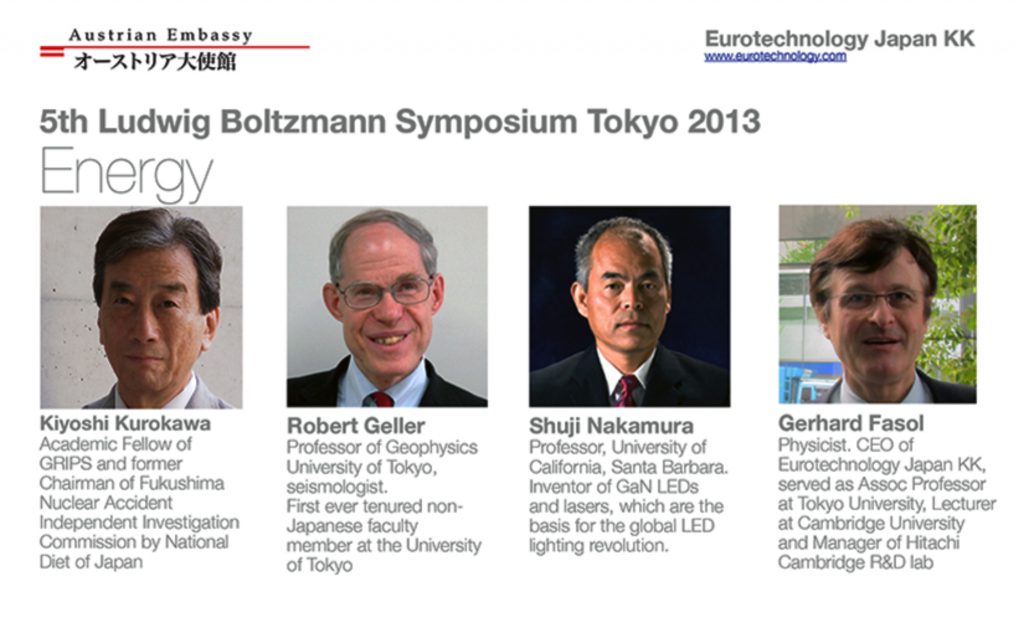
Summary
Robert Geller: “A seismologist looks at nuclear power plant safety issues”
Robert Geller gave an overview of large scale earthquakes and tsunamis in different regions of earth, and in history, and explained that large “Tohoku-2011” scale earth quakes and tsunamis do have a finite probability of striking Japan, and need to be taken in to account in the construction of structures such as nuclear power plants. Robert Geller in particular explained and emphasized the risks on the northern coast of Japan, facing the Sea of Japan.
Gerhard Fasol: “Ludwig Boltzmann – the disrespectful revolutionary”
Gerhard Fasol reviewed Ludwig Boltzmann’s life and work, and particular Boltzmann’s efforts to promote open discussion and to destroy dogmatic views, most importantly the rejection of atoms by Oswald’s school of “energetics” and Mach. Ludwig Boltzmann’s work is fundamental in many areas of today’s physics, technology, IT, energy and in many other fields. As a demonstration of Ludwig Boltzmann’s work linking the macrosopic face of Entropy with the statistical properties of atoms and molecules, Gerhard Fasol explained today’s state of development of electrical power production from the entry of mixing of water with different concentrations of salts, from salinity gradients. “Osmotic powerplants”, which are directly based on Boltzmann’s work on the Entropy of mixing, have the potential to be developed into a very important contribution to our future renewable energy mix, although much research still remains to be done, especially in the area of semipermeable membranes.
Kiyoshi Kurokawa: “Creativity, Crazy Ones and Power of Pull – Uncertain Times: Changing Principles”
Kiyoshi Kurokawa laid out the rapid and dramatic changes we are currently facing in our world: the development of the global information revolution, revolutions towards democracy in the arab world, the Sept-11 terror attacks, and the triple disaster in Tohoku in March 2011. As short summary of the information revolution, linked with other major developments of global impact:
web 1.0: 1991-2000 – end of cold war, world wide web, globalization and financial crises: 1990, 1992, 1997
web 2.0: 2001-2010 – 9.11, digital age, wireless, touch panel, growth of emerging economies, BRICs, global financial crisis 2007, and President Barak Obama
web 3.0: 2011- – Arab Spring, and March-11 Tohoku disaster
Paradigm shift of The Principles (Joi Ito, MIT Media Lab, and Kiyoshi Kurokawa, GRIPS):
The principles 1:
RESILIENCE instead of strength
RISK instead of safety
SYTEMS instead of objects
The principles 2:
COMPASSES instead of maps
PULL instead of push
PRACTICE instead of theory
The principles 3:
DISOBEDIENCE instead of compliance
CROWDS instead of experts
LEARNING instead of education
For his work as former Chairman of Fukushima Nuclear Accident Independent Investigation Commission by National Diet of Japan, Kiyoshi Kurokawa was recently awarded the “Scientific Freedom and Responsibility Award” by the American Association for the Advancement of Science (AAAS). Kiyoshi Kurokawa paid particular attention for the deliberations and fact finding by the Independent Investigation Commission was open and transparent, and published globally in Japanese and in English in many different forms. The report itself can be downloaded here: http://warp.da.ndl.go.jp/info:ndljp/pid/3856371/naiic.go.jp/index.html
Kiyoshi Kurokawa emphasised the contribution of “Regulatory Capture” to the Fukushima nuclear disaster. Important work on “Regulatory Capture” was done by US economist George Stigler, who was awarded the Nobel Prize in 1982. Kiyoshi Kurokawa emphasized that Regulatory Capture is not specific to Japan, there are many examples throughout the world.
Shuji Nakamura: “The global lighting revolution and the changes I want for Japan”
Shuji Nakamura briefly outlined his inventions of a long series of GaN based devices, GaN LEDs and lasers, which are the basis for the global lighting revolution, and for bluray storage technology. Shuji Nakamura gave us a passionate personal view of his work as a researcher, how he created and experienced the breakthroughs, and some consequences on his personal life. Shuji Nakamura explained how he was accused in a US court by his former employer, and how as a consequence in order to defend himself and his family, he saw himself forced to countersue his former employer in Japanese courts. Shuji Nakamura compared his situation as a researcher in Japan, and now in Santa Barbara, and made some suggestions for change for the position of researchers.
Photos

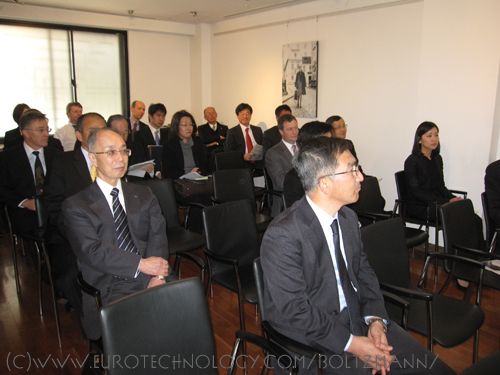
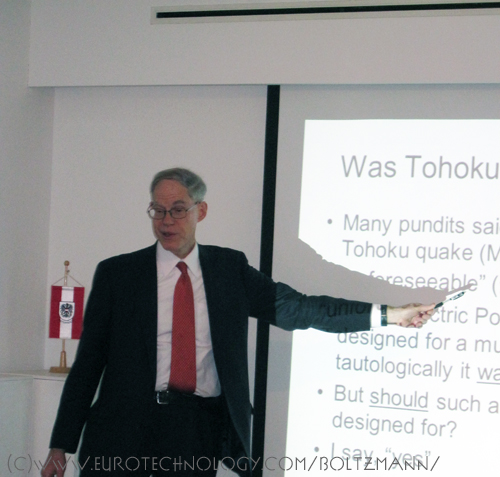
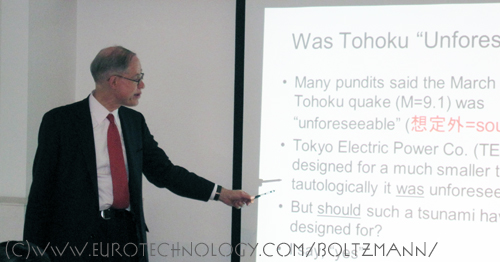
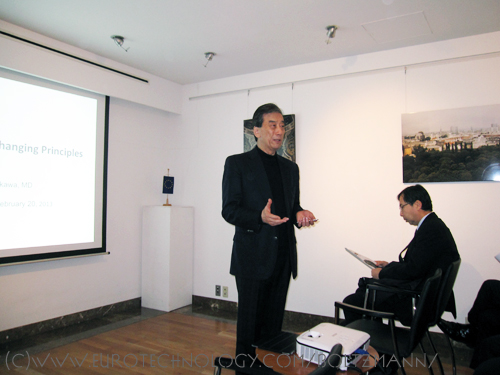




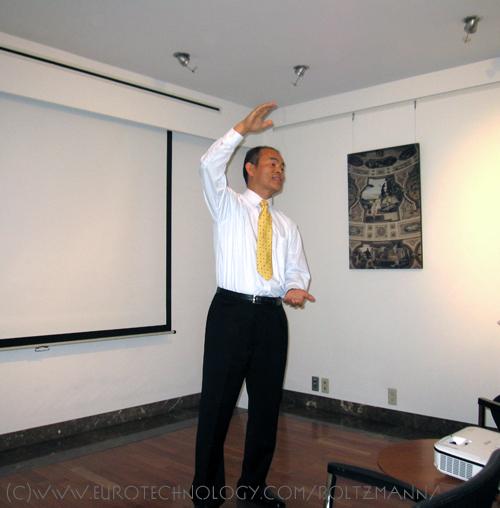
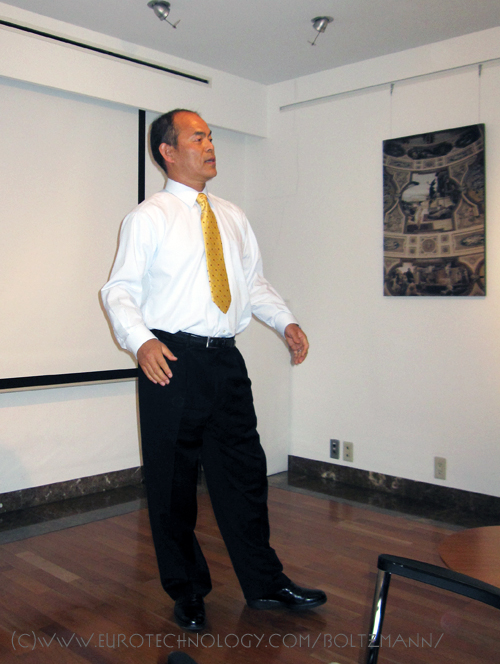
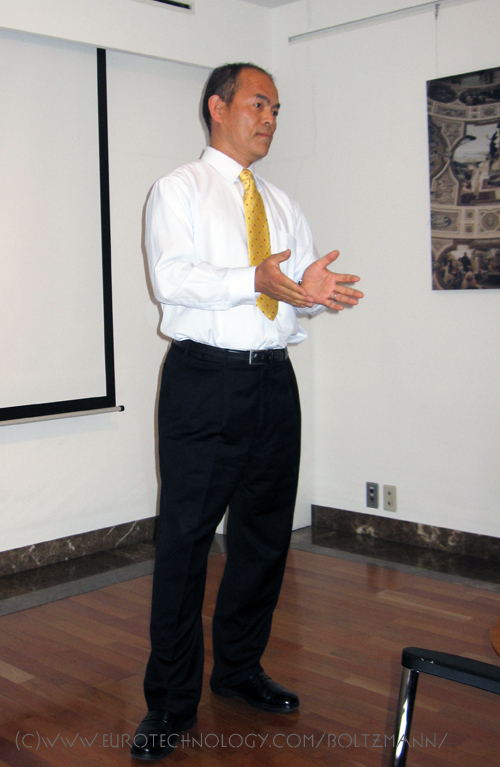
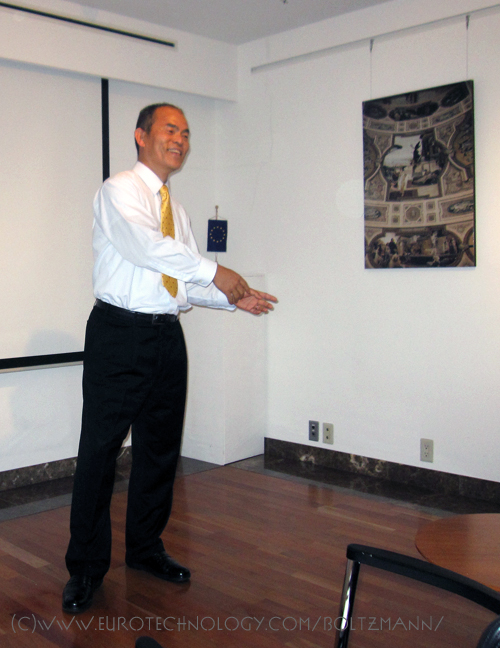
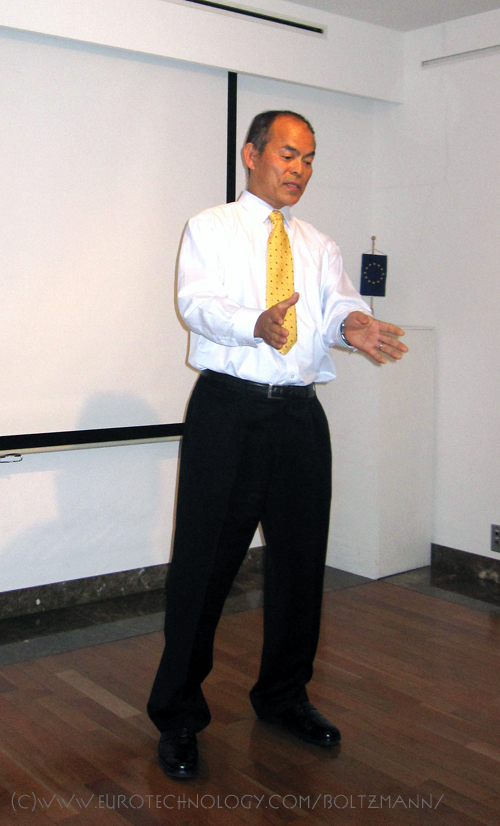
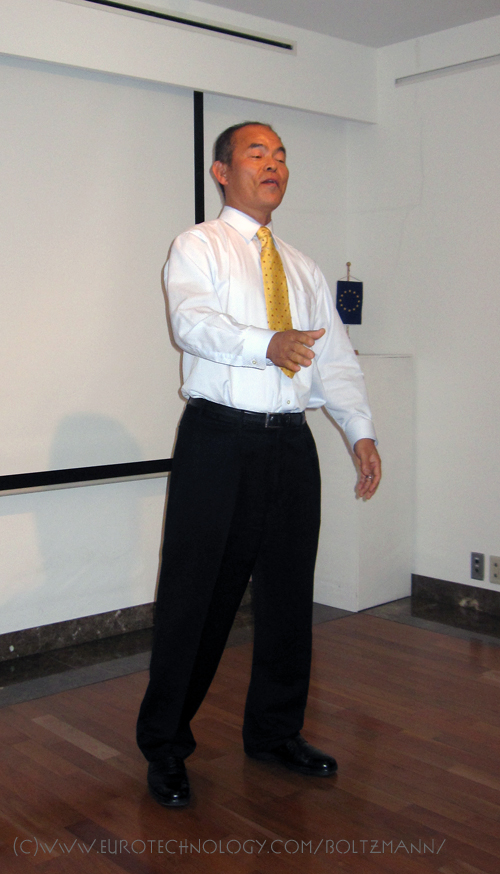
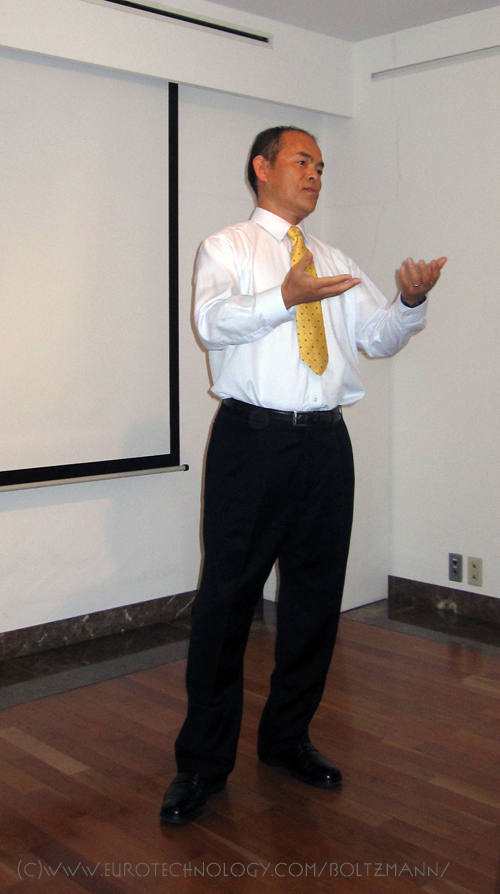
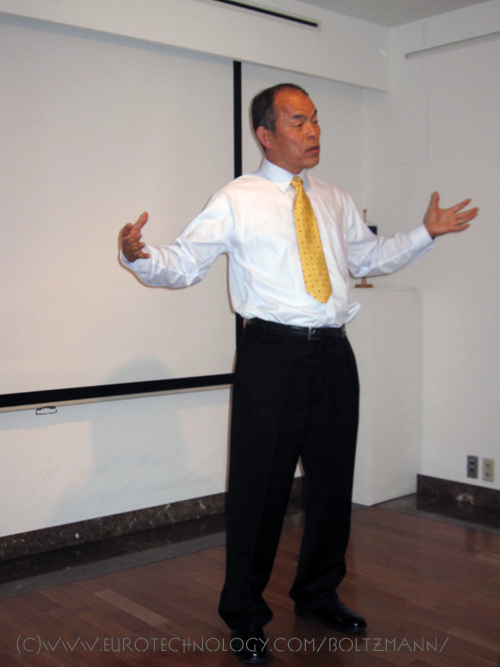
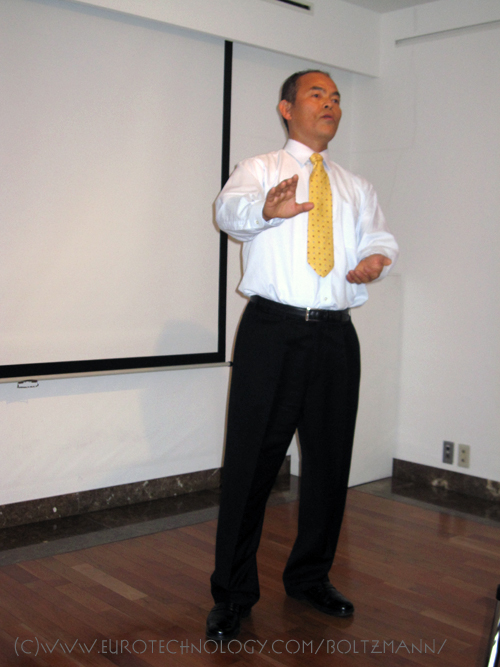

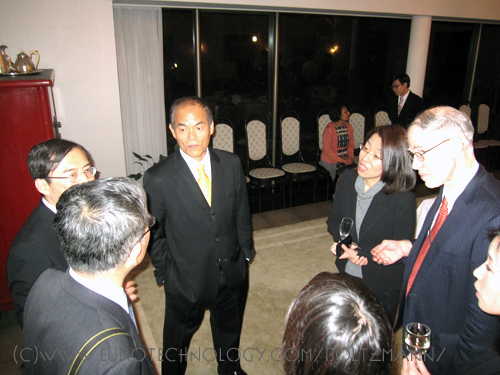
Contact
Copyright Eurotechnology Japan KK. All Rights Reserved.
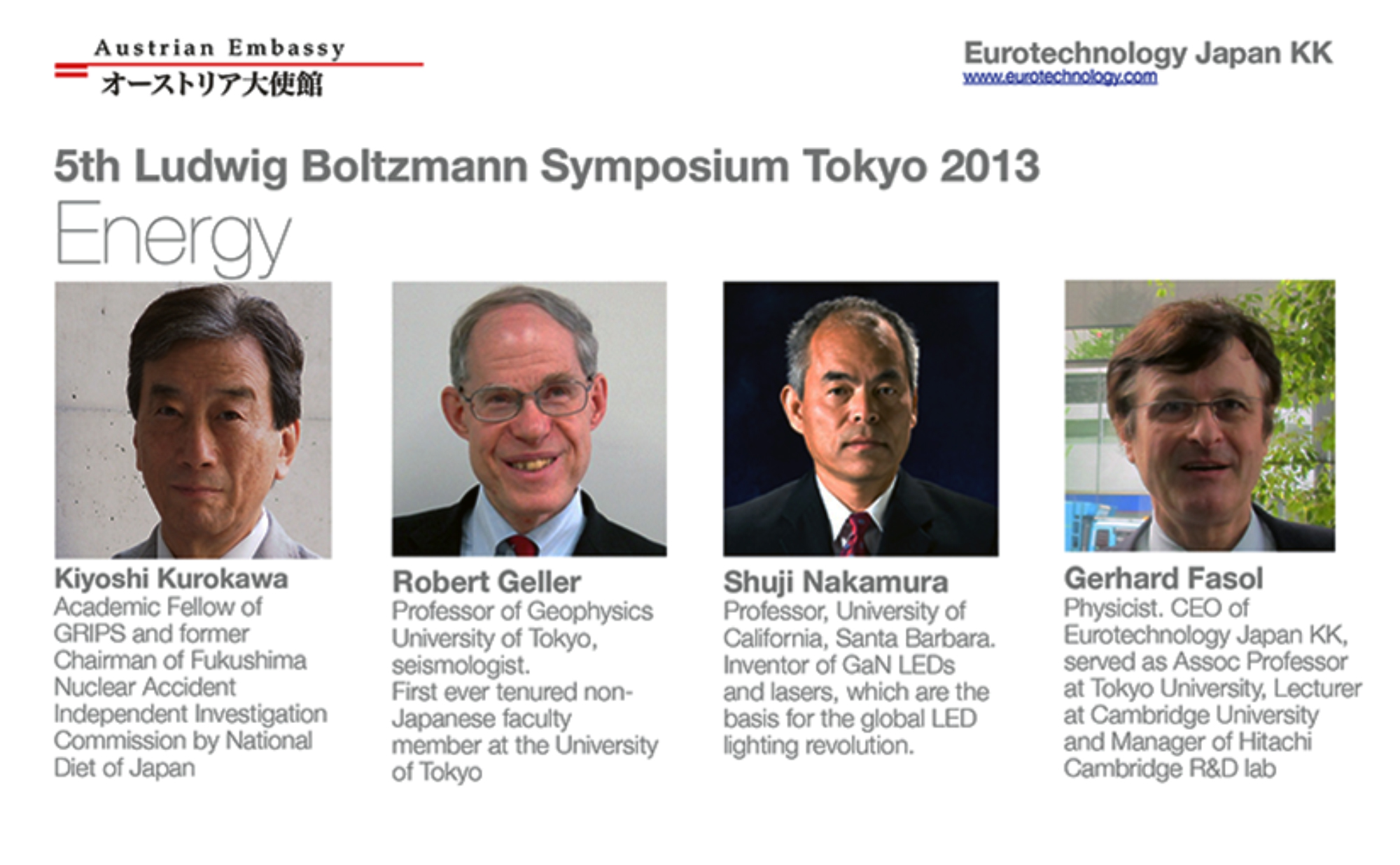
Leave a Reply